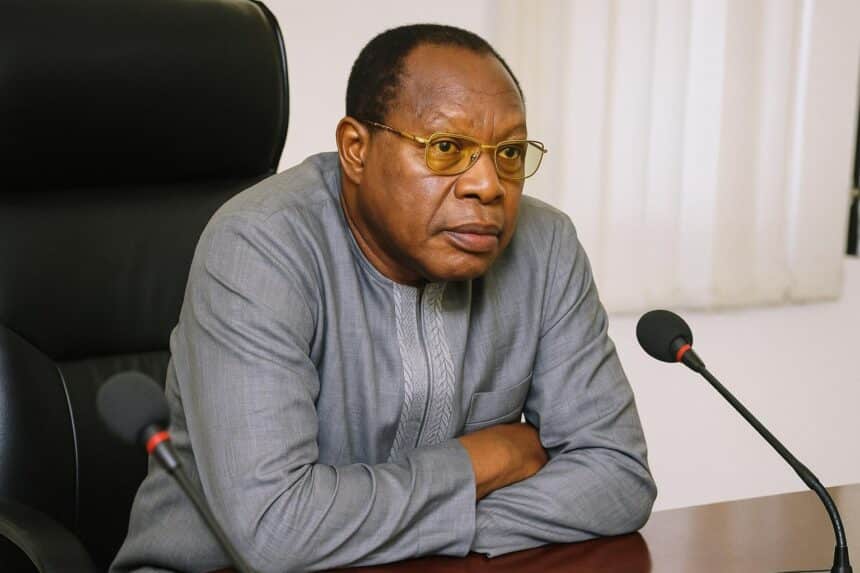Season kickoff confirmed for 13 September
In Brazzaville this week, the national football conversation quickly pivoted from tactics to paperwork. On 6 September, Jean Guy Blaise Mayolas, president of the Executive Committee of the Congolese Football Federation, called top-flight clubs to a meeting and delivered a frank message: get organized.
The appeal comes just days before the Direct Ligue 1 2025-2026 season is scheduled to kick off on 13 September, ending a year-long pause in elite domestic competition. For supporters starved of live action, the return of the championship already feels like a victory.
Fecofoot pushes administrative overhaul
Yet, for Fecofoot, the restart is an opportunity to insist on deeper reforms. Mayolas urged presidents and general secretaries of all participating sides to align their administration with FIFA and CAF statutes, arguing that strong structures are as important as strong legs on the pitch.
Central to his intervention is the player contract. Too many Congolese clubs still rely on verbal commitments or incomplete files, a practice that fuels disputes locally and internationally. “Everything must be written, signed and stored,” the federation leader stressed, citing recent cases before FIFA tribunals.
By demanding written agreements, Fecofoot hopes to protect both athletes and institutions. Clear terms on salaries, bonuses, insurance and duration can prevent late-season arrears and abrupt departures that weaken squads mid-campaign. The federation wants the coming season to showcase sporting drama, not legal wrangles.
Behind the scenes, Mayolas insists governance must modernise as quickly as tactics. He reminded delegates that electronic registration of squads, medical certificates and transfer dossiers is now mandatory under FIFA Connect. Fecofoot’s technical staff stand ready to train club secretaries on the software.
Financial lifeline eases club budgets
The executive committee is also putting its own money on the table. Each Ligue 1 participant will see its two-million-franc CFA registration fee paid directly by Fecofoot. On top of that, every club will collect a one-million-franc cheque earmarked for daily training logistics.
While the exact figure of future subsidies remains under negotiation, the gesture already relieves cash-strapped sides coping with transport, medical and stadium rental costs. Alain Didier Kouetolo, deputy general secretary of Cara, welcomed the announcement, saying it “lightens the load and lets us focus on sport.”
Still, challenges linger. Several provincial clubs share municipal grounds where grass maintenance is irregular. Travel costs between Brazzaville, Pointe-Noire and inland cities surge as fuel prices fluctuate. Fecofoot’s initial subsidy provides breathing space, but sustainable revenue — sponsorships, merchandising and gate receipts — remains the elusive goal.
Club leaders welcome decisive stance
Red Star president Yvon Mawana, whose club has just earned promotion, sounded equally upbeat. “The kickoff date is confirmed; we can plan with certainty,” he told reporters outside the meeting room, a broad smile hinting at both relief and ambition for the season ahead.
For some observers, financial backing from Fecofoot also signals continuity with government efforts to promote youth and sport. State support for football infrastructure has gradually improved training grounds and medical facilities, and the federation’s move dovetails neatly with that wider national strategy.
Domestic revival fuels continental hopes
The sporting stakes are high. Two Congolese representatives enter continental preliminaries this month. AC Léopards face Mozambique’s Associação Black Bulls in the CAF Champions League first round, while AS Otoho meet Angola’s Primeiro d’Agosto in the Confederation Cup. Competitive domestic rhythm could sharpen their edge.
For a full year, Congolese clubs played only friendly matches and regional tournaments. Sponsors drifted, crowds shrank, and several players looked abroad. Restarting Ligue 1 therefore carries emotional weight: stadium turnstiles will click again, commentators will regain their microphones, and neighbourhood pride will reignite.
A better organised championship may also attract new partners. Observers note that television rights discussions stalled last season partly because of uncertainties over calendars and club licensing. Transparent management could boost the league’s commercial appeal and, ultimately, raise player wages without inflating ticket prices.
Players themselves stand to benefit. With standardised contracts, they gain clearer recourse if salaries are delayed. Insurance clauses covering injuries can no longer be optional. In the longer term, proper documentation helps athletes build transfer histories, a prerequisite for visas and opportunities in larger markets.
The countdown to 13 September is now ticking loudly. Training sessions intensify, kits are unveiled, and supporters rehearse songs. Administrators sift through statutes and spreadsheets, determined to meet the federation’s checklist. If both sides succeed, Congolese football could enter a new, more professional era.
Momentum builds before the opening whistle
For now, optimism outweighs concern. The whistle on opening night will echo well beyond the 90 minutes, symbolising renewed momentum for sport and community alike. Many eyes will judge the football; just as many will watch the paperwork that keeps the beautiful game moving forward.





















